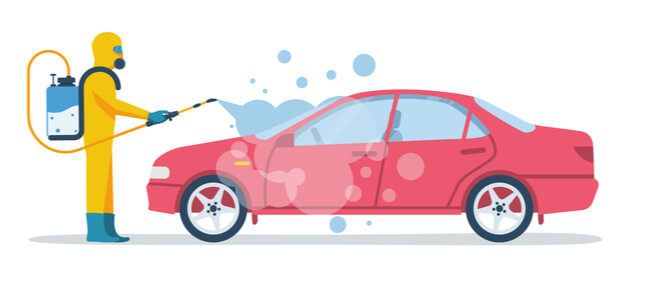Average Monthly Car Payment
According to the recent data published by Experian, there has been a significant rise in the average monthly car payments and preferred loan repayment terms across the US.
Here are some key takeaways from the study:
- American citizens owe more than $1.2 trillion when it comes to auto loans.
- Auto loan debts constitute almost 9.5% of total consumer debts across the country.
- The monthly average car payment for new car loans is $550. It amounts to $393 for used-car loans and $452 for leased cars.
- On average, Americans borrow $32,480 for new car finance and $20,446 for used-car financing.
- The average loan repayment term across the country is 69 months for new car loans, 37 months for leased cars, and 35 months for used-car loans.
- Almost 4.5% of all auto loan repayments are delayed by a minimum of 90 days.
What Determines Auto Loan Monthly Payments?
Your monthly payment is determined by multiple factors:
- Credit Rating - Your credit score offers lenders a snapshot of the overall quality of your finances and shows how risky lending to you can be. When you have a higher score, you will more easily qualify for lower rates, which in turn will lower the monthly payments. Conversely, a lower score will spike the rate higher, thus increasing your monthly payments.
- Repayment Term - The term of the loan determines the total interest you’ll be paying back to the lender. Your monthly payments will be high if you opt for a shorter repayment term. On the other hand, if you choose extended repayment terms, your monthly payments will be lower. However, keep in mind that the longer your term is, the more interest you’ll end up paying over the term of the loan, adding to the total expense.
- The Total Amount Borrowed - The total loan amount includes the cost of the vehicle, origination fee, processing charges, taxes, and interest. If your loan amount is high, you will pay more interest, which will ultimately increase the monthly payment.
- Your Monthly Income - Lenders also take into consideration your debt-to-income (DTI) ratio before setting the APR. If your DTI-ratio is low, you’re more likely to receive lower rates, and your monthly payments will accordingly be lower.
How To Secure A Low Monthly Car Payment
Securing a low monthly car payment depends on adjusting your needs and looking at the bigger picture.
You might not have control over every aspect, but there are things you can control to lower your monthly payments.
- Pay A Higher Down Payment - If you can afford a higher amount for a down payment, it will impact your loan-to-value ratio. A higher down payment or a trade-in means that you’ll ultimately need less financing. When you take out a smaller amount as a loan, you’ll have a lower monthly payment. Moreover, the extra payment makes your loan less risky for the lender and they might agree to offer you a lower rate of interest.
- Opt For A Less Expensive Vehicle - Consider your overall budget and monthly liabilities before selecting a car. If you think you can work with a lower-priced car, it is in your best interest to opt for that cheaper option. Keep in mind that new cars depreciate at an alarming rate. So, consider buying a car that fits your budget.
- Lower The DTI Ratio - Your debt-to-income (DTI) ratio is one of the primary reasons for higher rates. If you have multiple debts, you should work at clearing some of them. This will show the lender that you are not a high-risk borrower, thus improving your chance of obtaining better rates and lower monthly repayments.
- Build Your Credit Score - If you have a high FICO score - 720 or above, you are likely to get a low APR. The lower your score, the higher the rate. Work on building your FICO score before applying for a car loan.
Conclusion
If the payments on your new car are more than $550 per month, you are paying more on average than most other Americans.
Remember, when buying a new car you should take the time to understand your financial capability, plan your budget, and do the research.
Get quotes from multiple lenders, use online calculators to get rough estimates, and see to it that you will be able to make timely payments.





